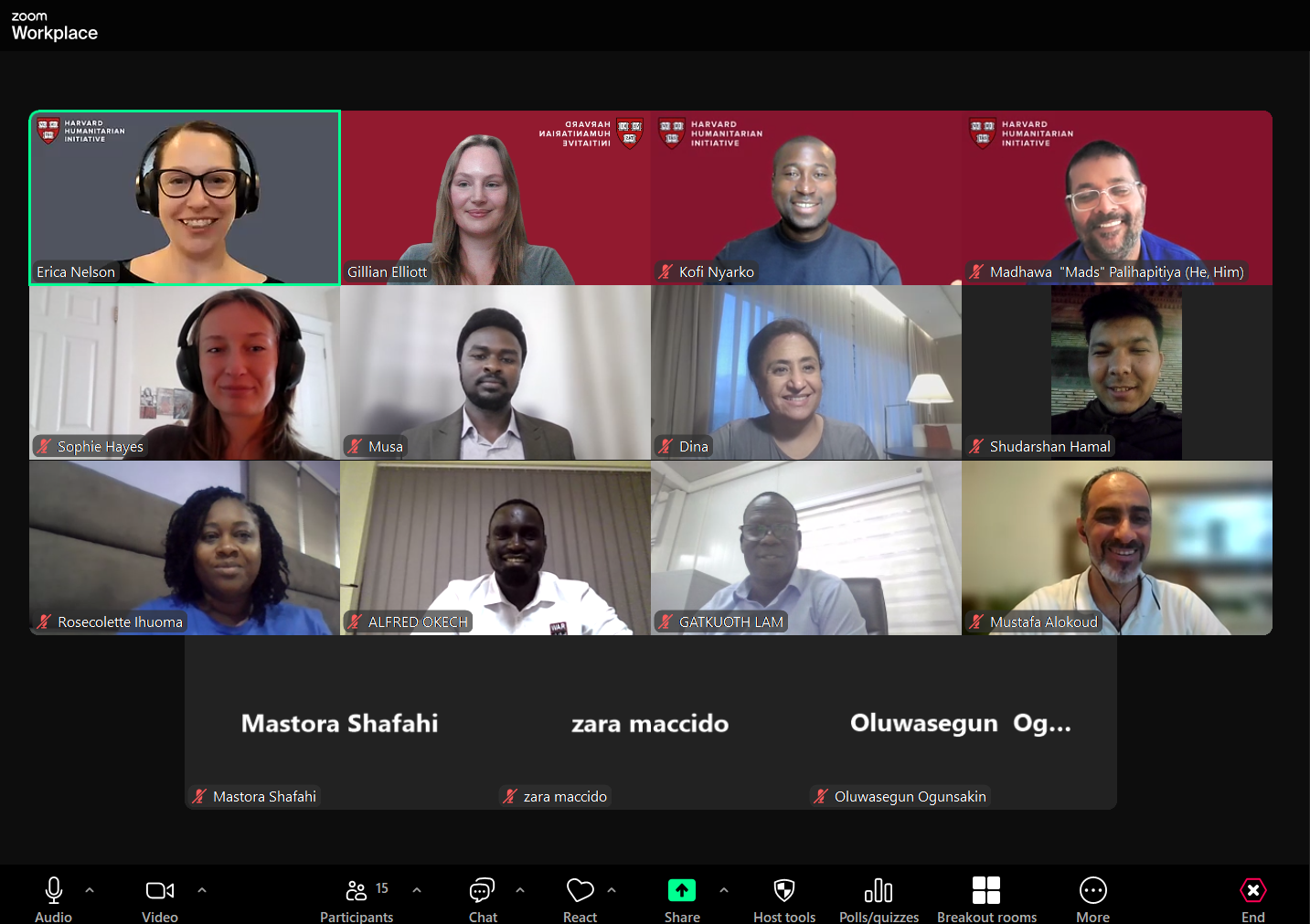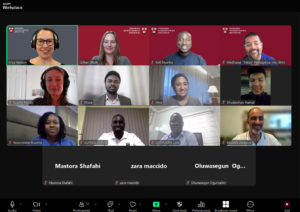The Atrocity Prevention Lab’s Synchronous Course: Bridging Geospatial Methods and Real-World Impact in Atrocity Prevention

In a milestone event, the Atrocity Prevention Lab (APL), part of the Signal Program on Human Security & Technology, recently launched its first synchronous workshop series—a live, virtual training designed to equip participants with cutting-edge geospatial tools and techniques for atrocity prevention. This workshop serves as an interactive, application-based companion to APL’s self-paced e-learning course on Canvas, bridging theoretical knowledge with hands-on, actionable skill development. Participants from around the world dedicated five weeks to mastering a comprehensive geospatial methodology that can be directly applied to real-world atrocity and conflict prevention.
Why Geospatial Methods Matter in Atrocity Prevention
The complex nature of conflict and atrocity prevention demands timely, location-specific data that can help practitioners anticipate and respond to crises before they escalate. Geospatial analysis—using tools like Geographic Information Systems (GIS), satellite imagery, and data visualization—enables practitioners to track conflict patterns, identify hotspots, and make data-driven decisions in environments where stakes are high, and resources are limited. For many organizations, however, geospatial methods remain underutilized due to barriers in technical training and data accessibility. The Atrocity Prevention Lab aims to address these gaps by offering both foundational and advanced training in spatial data methodologies tailored specifically to atrocity prevention contexts.
The Synchronous Workshop Series: A Dynamic Learning Experience
Unlike many online training programs, APL’s synchronous workshop series is highly interactive, allowing participants to learn through live engagement, collaboration, and immediate feedback. This five-week course, held in 90-minute sessions once a week, challenged participants to apply a structured geospatial workflow to a specific question relevant to atrocity prevention in their own contexts. By the end of the series, each participant had developed a project workplan that outlined a geospatially explicit question related to conflict or atrocity prevention, setting a foundation for real-world application of the skills they had gained.

The series culminated in a final presentation session, where participants showcased their workplans. These presentations not only demonstrated the diversity of issues addressed—from tracking displacement in conflict zones to monitoring areas at risk of violence—but also reflected the course’s core aim: to empower participants to leverage open-source data and spatial tools in pursuit of solutions tailored to their local contexts. The workshop was attended by ten participants from six different countries, underscoring its global reach and relevance. Upon completion, each participant received a certificate, marking their commitment and newfound expertise in this critical field.
Key Insights and Participant Feedback from the Workshop
The evaluation of the synchronous workshop series revealed both its successes and areas for growth, providing valuable insights into the learning experience. According to post-course feedback, participants reported a marked increase in confidence across several core areas of spatial data practice, including tool selection, dataset access, and the ethical handling of sensitive information. This is particularly meaningful given the complexities and risks associated with atrocity prevention, where data accuracy and ethical considerations can be a matter of life and death.
The collaborative structure of the workshop was another highlight, as participants were able to exchange ideas, share regional insights, and form connections with peers from diverse backgrounds. Many attendees expressed appreciation for the course’s interactive teaching style, citing it as a key factor in their engagement and satisfaction. One participant noted, “The supportive atmosphere created by the team made it easy to ask questions and collaborate with peers.” Another shared that the hands-on exercises in spatial methods improved their ability to approach conflict research questions with more clarity and rigor.
Looking Ahead: Building on a Strong Foundation
As with any inaugural program, feedback from participants also pointed out areas where APL could expand and refine its offerings. Many expressed a desire for more pre-course materials to better prepare them for the technical content, as well as additional sessions focused on emerging topics like machine learning in geospatial analysis, ethical data handling, and real-time data processing. These recommendations align well with APL’s commitment to adapting and growing in response to participant needs, ensuring that future workshops remain at the forefront of atrocity prevention methodologies.
The success of this first synchronous workshop series reinforces the importance of accessible, practical training for those on the frontlines of atrocity prevention. As the Atrocity Prevention Lab continues to expand its offerings, participants can look forward to even more opportunities for skill development, community building, and knowledge sharing. Through initiatives like this workshop series, APL is not only advancing the field of geospatial analysis in atrocity prevention but also building a global community of practitioners equipped to make a tangible impact.
For more information about the Atrocity Prevention Lab and upcoming training opportunities, visit the APL website. To enroll in the self-paced e-learning course on Canvas, click here. For those interested in joining the next cohort of the live virtual workshop, stay tuned for future announcements on LinkedIn.
By empowering practitioners with the skills and tools to analyze, predict, and respond to atrocity risks, the Atrocity Prevention Lab is playing a critical role in building a safer, more informed world.